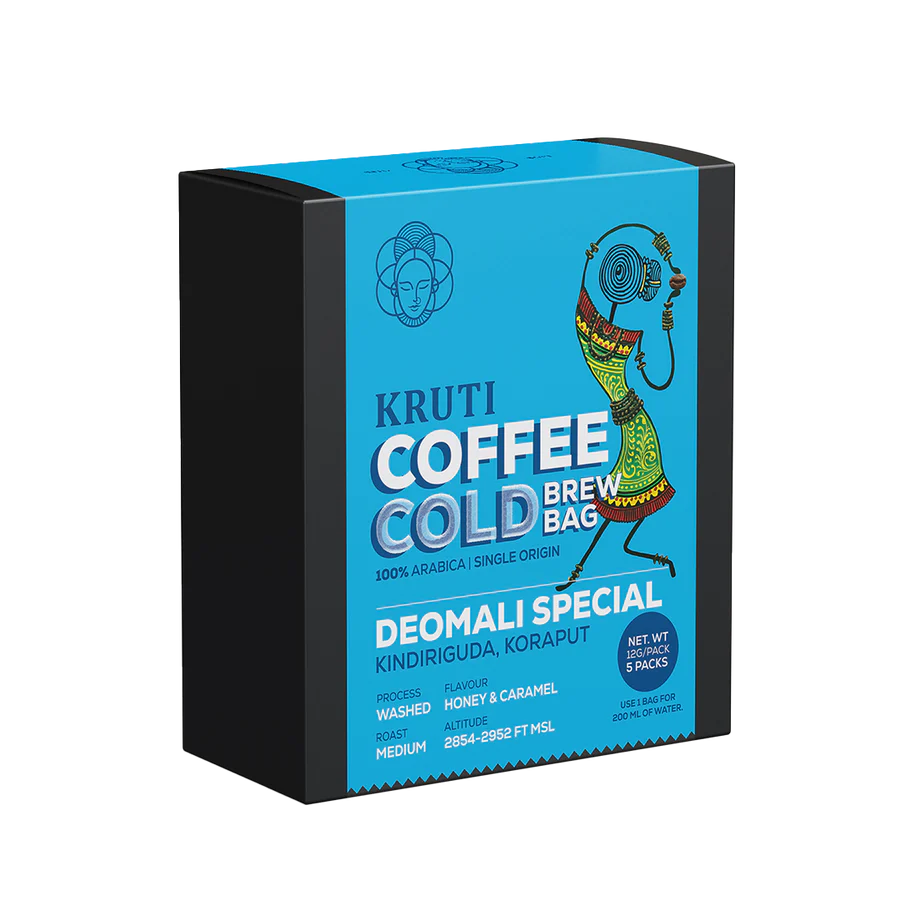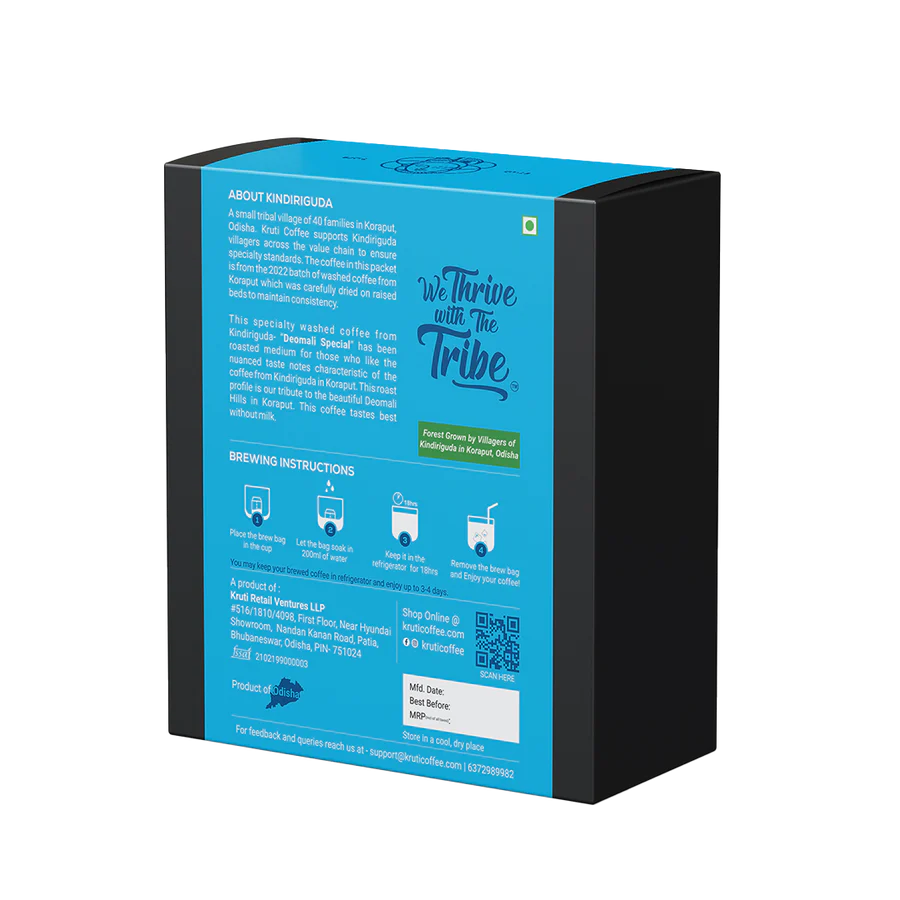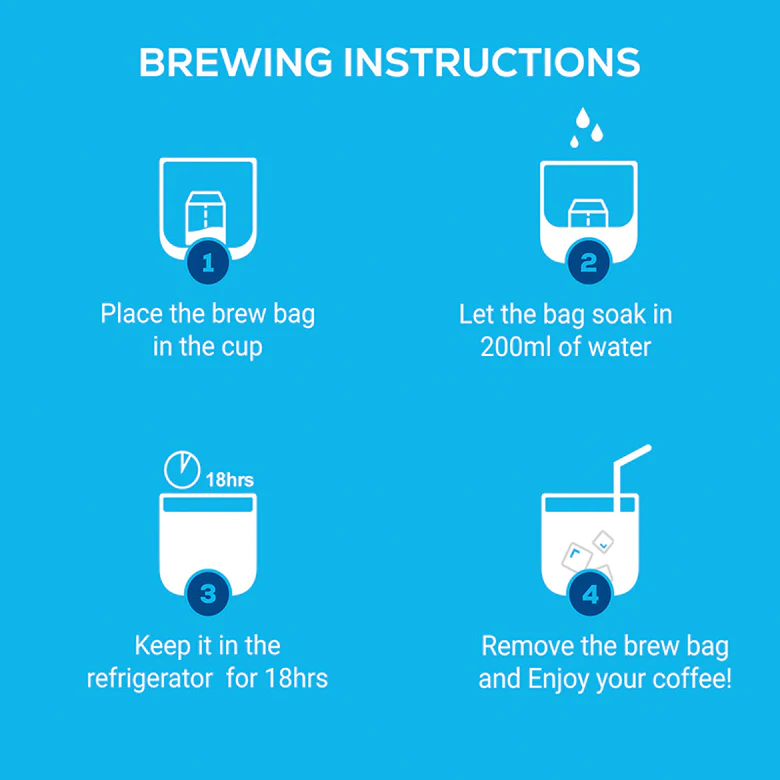Kruti Deomali Special Cold Brew Bag | Medium Roast – Pack of 5
₹190.0
Product Info
100% ARABICA | SINGLE ORIGIN
PROCESS: WASHED FLAVOUR: HONEY & CARAMEL
ROAST: MEDIUM ALTITUDE: 2854-2952 FT MSL
ORIGIN: KINDIRIGUDA, KORAPUT
USP: FOREST GROWN, SHADE GROWN , TRIBAL GROWN
QUANTITY: 5 COLD BREW BAGS (EACH 12 GRAM)
These cold brew bags have been specially designed to make brewing easy for you at home or as you travel. Please refer packaging for brewing instruction.
This specialty washed coffee from Kindiriguda- “Deomali Special” has been roasted medium for those who like the nuanced taste notes characteristic of the coffee from Kindiriguda in Koraput. This roast profile is our tribute to the beautiful Deomali Hills in Koraput.
About Kindiriguda: A small tribal village of 40 families in Koraput, Odisha. Kruti Coffee supports Kindiriguda tribal coffee farmers across the value chain to ensure specialty standards are maintained throughout. The coffee in this packet is from the 2021-2022 batch of washed coffee from Koraput which was carefully dried on raised beds to maintain consistency.
- Description
- Additional information
- Reviews (0)
- Q & A
- Sustainability Remark
- More Offers
- Store Policies
- Inquiries
| brands | Kruti Coffee |
|---|
You must be logged in to post a review.
Q & A
Organic coffee is often considered more sustainable than conventionally grown coffee due to its cultivation methods and environmental impact. Here are some factors that contribute to the sustainability of organic coffee:
Environmental Benefits: Organic coffee is grown without the use of synthetic pesticides, herbicides, and fertilizers. This reduces the risk of water and soil contamination, preserves biodiversity, and promotes healthier ecosystems. Organic farming practices also prioritize soil health and conservation by employing techniques such as composting, crop rotation, and natural pest control.
Wildlife Conservation: Organic coffee plantations provide habitats for various plant and animal species. By avoiding the use of synthetic chemicals, organic farms support biodiversity, including birds, insects, and mammals. Shade-grown organic coffee farms, in particular, can create diverse ecosystems that mimic natural forests, offering refuge to many species.
Climate Change Mitigation: Organic coffee farming often incorporates practices that contribute to climate change mitigation. For example, organic farms tend to have higher levels of organic matter in the soil, which aids in carbon sequestration. Additionally, organic practices typically avoid deforestation and promote reforestation, helping to reduce greenhouse gas emissions and conserve natural carbon sinks.
Healthier for Farmers and Consumers: Organic coffee farming prioritizes the well-being of farmers and workers by minimizing their exposure to toxic chemicals. This is not only beneficial for their health but also for the surrounding communities and ecosystems. Organic coffee is also free from chemical residues, offering consumers a healthier and more natural choice.
Certification and Standards: Organic coffee is often certified by reputable organizations such as the United States Department of Agriculture (USDA) or the European Union (EU). These certifications ensure that specific standards and guidelines for organic farming practices are met, providing consumers with confidence in the product's sustainability and authenticity.
While organic coffee has numerous sustainability benefits, it's important to note that the overall sustainability of the coffee industry depends on other factors as well, such as fair trade practices, social responsibility, and the economic viability of farmers. By supporting organic and fair trade certifications, consumers can contribute to a more sustainable and ethical coffee industry.
General Inquiries
There are no inquiries yet.




















Reviews
There are no reviews yet.